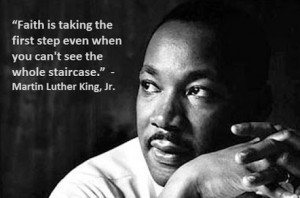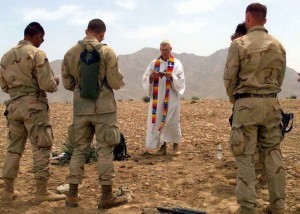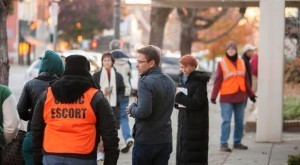C. Aaron Russell's Blog, page 10
January 20, 2014
MLK Jr.’s final speech, ‘I have been to the mountaintop’
 “I’ve Been to the Mountaintop” is the popular name of the last speech delivered by Martin Luther King, Jr.. King spoke on April 3, 1968, at the Mason Temple (Church of God in Christ Headquarters) in Memphis, Tennessee. On the next day, King was assassinated.
“I’ve Been to the Mountaintop” is the popular name of the last speech delivered by Martin Luther King, Jr.. King spoke on April 3, 1968, at the Mason Temple (Church of God in Christ Headquarters) in Memphis, Tennessee. On the next day, King was assassinated.
The speech primarily concerns the Memphis Sanitation Strike. King calls for unity, economic actions, boycotts, and nonviolent protest, while challenging the United States to live up to its ideals. At the end of the speech, he discusses the possibility of an untimely death. (wikipedia)
January 16, 2014
Pastors preaching gimmicks instead of gospel
Why Are So Many Pastors Pulling Stunts?
DAVID GIBSON/RNS
 A California pastor made headlines this month when he announced that he will live like
A California pastor made headlines this month when he announced that he will live like
an atheist for a year to see what it’s like on the other side of belief. But Ryan Bell is actually just the latest “stunt pastor” to use unorthodox means to draw attention to his message.
In recent years, other church leaders have challenged congregants to have sex (with their spouse) for 30 days straight or have dressed like homeless people or lived in a tiny box or on a spacious roof in order to gin up attention, attendance or funds.
This kind of reality-show piety has a history, of sorts, especially in Christianity: A fifth-century ascetic, Simeon Stylites, achieved great fame by living—subsisting, really—atop a pillar for some 37 years.
But the rise of the entertainment industry, combined with a focus on marketing techniques to preach the faith or build up a church, have sparked a penchant for ministry gimmicks that go well beyond the old dunk tank:
1. ‘Homeless’ bishops…
2. A month of sex—no ifs, ands or buts…
3. A week of ‘congregational copulation’…
4. Losing weight for the Lord…
5. Living on food stamps, making a point…
6. Pastor-in-a-Box…(read full story at Religious News Network)
January 15, 2014
Rescue mission for persecuted Christians
Help the Persecuted Stay? Or Help Them Move?
Groups that help persecuted Christians survive at home sometimes help them leave, too.
Kate Tracy (Christianity Today)

Southern Sudanese refugees
After successfully airlifting 5,000 Christians from Sudan in 2012, the Barnabas Fund is attempting a second rescue mission. This time the group plans to bus out another 3,400 Christians from the Islamic state.
The organization is partnering with the Africa Inland Church (which has about 125,000 members in Sudan) to take the group of mostly widows and children to South Sudan. Barnabas leaders say many of the Christians had lived in southern Sudan before it gained independence and had fled to slums outside the capital city, Khartoum, during the decades-long civil war. They see the effort as creating repatriates, not refugees.
The effort will cost $169 per person—all told, the total cost of the operation amounting to about half of Barnabas’s annual revenue in recent years.
“Where at all possible, the aim is to assist people to be reestablished in their own environment,” said spokesperson Brenda Dobbs in an email. “It is only in extreme situations … that people are relocated to a different country—generally when they are directly threatened with murder or the death penalty.”
Religious liberty monitors and advocates say the Sudanese government has taken several measures to repress Christians and non-Arabs since South Sudan declared independence in 2011. Several churches have been destroyed and Christians are targeted for deportation, interrogation, and arrest, the groups say.
The religious freedom news service Morning Star News characterized recent government actions as evidence of the Sudanese government’s “determination to rid the country of Christianity.” It also said that “South Sudanese Christians in Sudan have faced increased hostilities due to their ethnic origins—though thousands have little or no ties to South Sudan—as well as their faith.”
Barnabas’s effort is unusual in its specifics, religious liberty organizations say: It’s a public plan to send Christians to a country many of them already consider home—not to mention one that dovetails with the efforts of the Sudanese government to remove South Sudanese Christians.
But the organizations say the Sudan move shares many important features with a small but important part of their work: helping Christians leave countries that persecute them…(continue reading at Christianity Today)
January 13, 2014
Victory for religious freedom in U.S. military
Congress strengthens religious freedom for the military
by Michael Cochrane (Christian Examiner)
 The Senate passed a defense bill with strong bipartisan support last week that includes important language to strengthen and protect the religious freedom of military members and chaplains.
The Senate passed a defense bill with strong bipartisan support last week that includes important language to strengthen and protect the religious freedom of military members and chaplains.
The 2014 National Defense Authorization Act (NDAA) includes the standard provisions for funding the military as well as amendments that expand the protection of military members’ religious freedoms, including their personal beliefs, actions, and speech. Specific language in the NDAA protects the freedom of military chaplains to “close a prayer outside of a religious service according to the traditions, expressions, and religious exercises of the endorsing faith group.”
“I commend the overwhelming bipartisan support in Congress for protecting the right of service members to freely practice and express their faith,” Family Research Council President Tony Perkins said in a statement. “Congress acted appropriately after investigating numerous incidents involving service members who have had their careers threatened and harassed simply for practicing their faith in a real and tangible way…” (continue reading at Christian Examiner)
January 10, 2014
Christian professor experiences the cost of gospel ministry
Pro-Life Professor Pays the Price for Convictions
MATT DAMICO (Charisma News)

Owen Strachan (center) seeks to counsel women to choose life outside a Louisville, Ky., abortion clinic. (Southern Baptist Theological Seminary photo by Emil Handke)
For Owen Strachan, convictions come with a cost.
Strachan, assistant professor of Christian theology and church history at Boyce College, has been pro-life for many years. It wasn’t until recently, however, that he decided to act on his conviction.
“I’ve been convictionally pro-life for a long time but hadn’t taken an opportunity to get involved with the cause,” Strachan says. “I was a passionate advocate for pro-life thinking, but it wasn’t until coming into contact with this ministry—and finding people who were putting their convictions to work—that I started to get practically involved.”
The ministry is Speak for the Unborn, which came to life when Ryan Fullerton, pastor at Immanuel Baptist Church in Louisville, Ky., preached a sermon on sanctity of life Sunday in 2009. Dave and Stacey Hare, who were then members at Immanuel, decided to act on the message they heard. The following Saturday, they went to downtown Louisville to do sidewalk counseling outside of the abortion clinic.
“They had no idea what they were doing,” says Andrew King, who has led the ministry at Immanuel since the Hares left for the mission field in 2010. “But they went out there and started talking to people, pleading with them not to have abortions.”
A group from Immanuel continues to go out every Saturday morning to do sidewalk counseling. On Tuesdays and Fridays, a group goes from Louisville’s Kenwood Baptist Church, where Strachan serves as an elder.
As a professor at the undergraduate school of the Southern Baptist Theological Seminary and as a pastor, Strachan’s primary calling is to teach, write and think. But he wanted to put his intellectual life to work.
“It’s an extremely good thing for our faith and convictions to cost us something,” Strachan says. “In a Jesus-like way, we can put boots on the ground and our doctrine into practice, and really experience the cost of gospel ministry.”
Sidewalk counseling makes the cost quite tangible.
“It’s not a fun ministry,” he says…(continue reading at Charisma News)
January 7, 2014
Christian library torched in rise of violent hysteria through middle east
Over 50,000 Books Burned in Christian Library in Lebanon Over Blasphemy Claim; US Leader Says ‘Violent Hysteria’ Spreading in Muslim World
BY TYLER O’NEIL , CP REPORTER
 American leaders denounced the burning of a Christian leader’s library in Tripoli, Lebanon, last Friday night as based on false pretenses and said it’s a threat to religious liberty.
American leaders denounced the burning of a Christian leader’s library in Tripoli, Lebanon, last Friday night as based on false pretenses and said it’s a threat to religious liberty.
“The really bad news is that this is not out of the ordinary,” Robert P. George, chair of the United States Commission on International Religious Freedom (USCIRF), told The Christian Post in an interview on Monday. George emphasized the need to advocate for religious freedom across the world to prevent attacks like this one.
The Friday night fire burned two-thirds of some 80,000 books and manuscripts in the Al-Saeh library owned by Greek Orthodox priest Ibrahim Surouj, RT reported. The arsonists targeted Surouj due to an alleged pamphlet insulting the Prophet Mohammed was found in one of the library books. When Surouj met with Islamic leaders in the city, he stated that he had nothing to do with the pamphlet.
International Security Forces Brig. Imad Ayyoubi also denounced the connection. “Father Surouj has nothing to do with the article and the source of the website is from Denmark and was published on Jan. 7, 2010,” Ayyoubi said, The Blaze reported. Hundreds of Lebanese citizens demonstrated Saturday in support of the priest.
“Flames of a violent hysteria against all perceived threats to Islam are spreading rapidly through the Muslim world today,” Nina Shea, director of the Hudson Institute’s Center for Religious Freedom, told CP on Monday…(continue reading at the Christian Post)
January 6, 2014
Best church signs of 2013
Top Church Signs of 2013
Which church signs made it into the 10 best signs of the year?
Ed Stetzer (Christianity Today)
One of the weekly features here on the blog is Church Signs of the Week. Every Friday, we post three of the funniest church signs we’ve received all week. Over the course of the year, we’ve accumulated dozens of church signs and we took some time to narrow it down to 10 of the best.
Choosing the Top 10 Church Signs of 2013 was not a science by any means, but we did our best. Here they are, the Top 10 Church Signs of 2013.
…see more at Christianity Today
January 2, 2014
Are you called to serve in 2014 – Estás llamado a servir en 2014
 Encounter with Jesus (en español abajo)
Encounter with Jesus (en español abajo)
Crosswalk Devotionals
How do you respond when you find opportunities to serve God? Let me list some of the wrong answers:
“I can not.”
“My schedule is too busy.”
“I don”t know how to do it.”
“I’m not a pastor.”
These responses close the door before we know whether or not the Lord wants us to enter. You’ve probably never thought that refusing to serve God is idolatry, but that’s what it is: bowing to self rather than submitting to the Lord.
The Lord first wants His servants willing to do whatever the calling, and after to look for how they can meet their specific plan. God specially endows his followers to serve him according to his will. But when we have decided that we cannot, we will not, or are not well prepared, then we are acting according to our own will, and that’s not right.
You can serve the Lord as a good father, sharing the gospel with coworkers, friends or listening to those who are suffering. There is no restriction on what God can do with a willing helper. The power of his Spirit exceeds human limitations. Do not feel brave enough? God can change that. Do not have the right skills? God can change that.
Leaving excuses behind is the wisest thing we can do to serve God. Trust that the Lord will enable you to do what he calls you to do, and He will take care of providing for it and properly preparing you (Eph 2.10; 2 Tim 2.20 , 3.16, 17). All He asks is that you say “yes”.
Encuentro con Jesús
¿Cómo responde cuando encuentra oportunidades para servir a Dios? Permítame enumerar algunas de las respuestas incorrectas:
No puedo.
Mi agenda está demasiado ocupada.
No sé cómo hacerlo.
No soy pastor.
Estas respuestas cierran la puerta antes de que sepamos si el Señor quiere o no que entremos. Usted quizás nunca ha pensado que negarse a servir a Dios es idolatría, pero eso es lo que es: doblegarse ante uno mismo en vez de someterse a él.
El Señor quiere que sus siervos estén dispuestos, primero, a hacer lo que sea; y después, a buscar conocer su plan específico para ellos. Dios dota de manera especial a sus seguidores para que le sirvan conforme a su voluntad. Pero cuando ya hemos decidido que no podemos hacerlo, que no lo haremos, o que no estamos bien preparados, estamos actuando entonces de acuerdo con nuestra voluntad, y eso no está bien.
Usted puede servir al Señor como buen padre, o como quien comparte el evangelio con sus compañeros de trabajo, o como amigo que escucha a quienes estén sufriendo. No hay ninguna restricción en lo que Dios puede hacer con un ayudador dispuesto. El poder de su Espíritu supera las limitaciones humanas. ¿No se siente lo suficientemente valiente? Dios puede cambiar eso. ¿No tiene las aptitudes adecuadas? Dios puede cambiar eso.
Dejar las excusas es lo más sabio que podemos hacer para servir a Dios. Confíe en que el Señor le capacitará para hacer lo que él le llame a hacer, y que se ocupará de dotarle y prepararle debidamente (Ef 2.10; 2 Ti 2.20; 3.16, 17). Lo único que él le pide es que diga “sí”. Dejar las excusas es lo más sabio que podemos hacer para servir a Dios.
December 30, 2013
TV stars are not martyrs: Putting Christian priorities in perspective
A Real Cause for Christian Outrage
Believers around the world are dying for their faith. Where’s the evangelical groundswell for them?
Halee Gray Scott (Christianity Today)

Rubens, Massacre of the Innocents
Swiftly on the heels of Christmas comes the feast of the Holy Innocents. On December 28, churches around the world commemorate the first Christian martyrs—those who lost their lives when King Herod ordered the execution of all males two and under in the vicinity of Bethlehem. (Greek liturgy maintains that 14,000 boys were killed, while several medieval writers claimed 144,000. Given the small population of Bethlehem, most modern scholars agree the number to be closer to 20.)
We consider such atrocities relegated to the ancient past, a barbaric time of intemperate, megalomaniac rulers. In today’s enlightened era of diplomacy, such evil would not go unchecked.
And yet, Christians today are massacred on a far greater scale than from any edict issued from Herod. According to Open Doors, which provides support for Christians around the world, Christians are the most persecuted religious group in the world today, with 100 people martyred for their faith each month. The Pew Forum on Religion and Public Life reports that Christians suffer persecution, discrimination, and harassment in 133 countries—a full two-thirds of all countries worldwide.
In September, 85 congregants were killed in bombing of All Saints Church in Pakistan while a consecutive attack at Nairobi’s Westgate mall claimed the lives of 72 people. On October 21, U.S. supported Islamic rebels invaded the Syrian town of Sadad and carried out one of the largest massacres in the country’s history. Forty-five Christians, including women and children, were tortured and murdered…
We’re incensed when a millionaire is suspended from a reality television shows for expressing his faith in a coarse manner. We march out in support of a multi-million dollar business when the CEO comes under fire for expressing his views on traditional marriage. But we turn our heads and avert our eyes when the blood of the martyrs, our fellow Christians, cry out to us from the ground.
We shouldn’t just be talking about this more—we should have no other choice. It should be impossible to ignore…(read full story at Christianity Today)
December 28, 2013
Israel’s Christian community fight for own identity
Israel’s Christian Awakening
A Controversial New Movement Wants to Cooperate More Closely With the Jewish State
By ADI SCHWARTZ (Wall Street Journal)

85-foot tree part of Christmas celebration in Nazareth
As Christmas neared, an 85-foot-high tree presided over the little square in front of the Greek Orthodox Church of the Annunciation in Nazareth. Kindergarten children with Santa Claus hats entered the church and listened to their teacher explain in Arabic the Greek inscriptions on the walls, while a group of Russian pilgrims knelt on their knees and whispered in prayer. In Nazareth’s old city, merchants sold the usual array of Christmas wares.
This year, however, the familiar rhythms of Christmas season in the Holy Land have been disturbed by a new development: the rise of an independent voice for Israel’s Christian community, which is increasingly trying to assert its separate identity. For decades, Arab Christians were considered part of Israel’s sizable Palestinian minority, which comprises both Muslims and Christians and makes up about a fifth of the country’s citizens, according to the Israeli government.
But now, an informal grass-roots movement, prompted in part by the persecution of Christians elsewhere in the region since the Arab Spring, wants to cooperate more closely with Israeli Jewish society—which could mean a historic change in attitude toward the Jewish state. “Israel is my country, and I want to defend it,” says Henry Zaher, an 18-year-old Christian from the village of Reineh who was visiting Nazareth. “The Jewish state is good for us.”
The Christian share of Israel’s population has decreased over the years—from 2.5% in 1950 to 1.6% today, according to Israel’s Central Bureau of Statistics—because of migration and a low birthrate. Of Israel’s 8 million citizens, about 130,000 are Arabic-speaking Christians (mostly Greek Catholic and Greek Orthodox), and 1.3 million are Arab Muslims.
In some ways, Christians in Israel more closely resemble their Jewish neighbors than their Muslim ones…(continue reading at WSJ)






